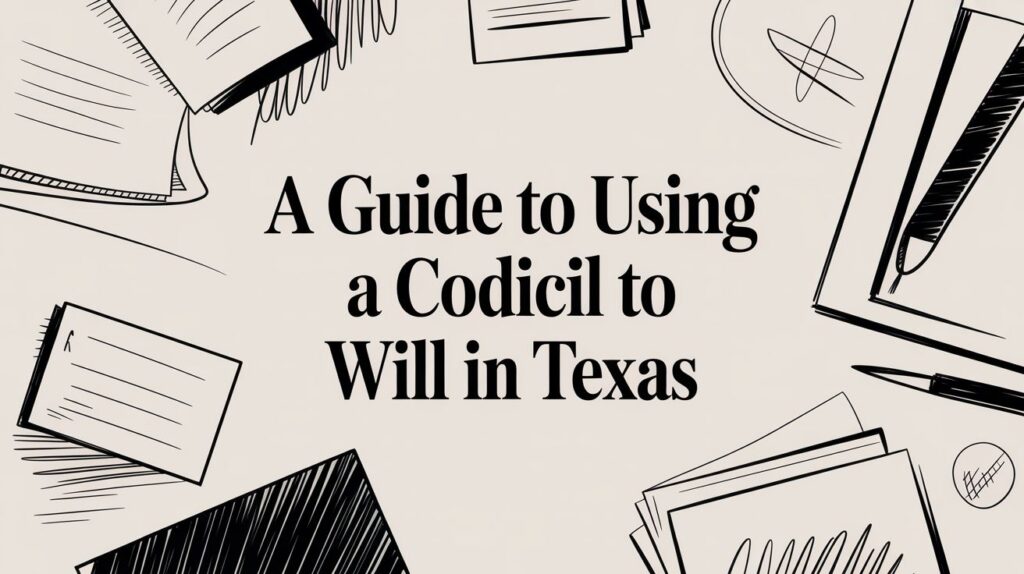Walking into probate court without guidance can feel like stepping into a maze where every turn has legal consequences. When a loved one passes away, emotions run high, and unfortunately, that’s when costly mistakes are most likely to happen. Whether you’re an executor, beneficiary, or surviving spouse, probate court guidance can help you steer clear of common pitfalls. The reality is, many people assume probate is just paperwork. In truth, it’s a complex legal process that demands strategy, timing, and attention to detail.
In this guide, we’ll break down the most common probate errors people make in court. From mishandling creditor claims to failing to notify heirs properly, we’ll use real-life examples and a conversational tone to walk you through it all. If you’re involved in settling an estate, understanding where others go wrong could be your biggest asset.

Why Probate Court Guidance Matters
Legal Missteps Have Long-Term Effects
Many people enter probate court assuming the process will be quick and painless. After all, if there’s a will, what’s there to argue about? The truth is, probate isn’t just about honoring someone’s wishes—it’s about satisfying legal and financial obligations first.
Without proper probate court guidance, executors and family members can make errors that cause:
- Court delays
- Legal disputes among heirs
- Penalties for mishandling assets
- Personal liability for unpaid debts
The consequences aren’t just theoretical they can lead to real financial loss or fractured family relationships.
Mistake #1: Assuming You Don’t Need a Probate Attorney
DIY Probate Can Backfire Quickly
One of the biggest mistakes families make is trying to handle everything themselves. Probate law varies by state, and every court has its own local rules and paperwork requirements. Filing the wrong document or missing a deadline can result in the court rejecting your petition or delaying distribution for months.
Real-life example: Michelle in El Paso tried to file probate herself after her father passed. She missed the creditor notice deadline and distributed assets early. A medical creditor filed a claim later, and Michelle ended up paying the debt out of her own pocket—more than $12,000.
Had she sought probate court guidance from an attorney, she could have protected herself and the estate.
Mistake #2: Failing to Notify All Interested Parties
Proper Notice Is Required by Law
Probate isn’t a private matter. One of the legal requirements is to notify all heirs, beneficiaries, and sometimes creditors or government agencies. Failing to do so violates the court’s due process expectations.
If someone is left out, even unintentionally, they could later contest the entire proceeding. That means starting over—and facing potential litigation.
In Texas, for example, the executor must send notice to:
- All known heirs (even estranged family members)
- Beneficiaries listed in the will
- Creditors with valid claims
- The Attorney General (in charitable estate cases)
Skipping this step or sending notice incorrectly can halt probate in its tracks. This is why having probate court guidance ensures compliance with state notice laws.
Mistake #3: Mismanaging the Estate Inventory
Incomplete or Inaccurate Inventories Are Red Flags
The inventory process isn’t just about making a list of assets. It’s a legal document that must be submitted to the court. Errors here—whether due to oversight or omission—can result in court hearings, penalties, or delays.
Common mistakes include:
- Forgetting to include jointly held accounts
- Underreporting the value of real estate
- Excluding collectibles, stocks, or digital assets
- Failing to deduct estate debts accurately
Example: Joseph in Houston undervalued a commercial property in his brother’s estate. When the heirs later sold it for double the listed amount, they were investigated for possible fraud. That mistake triggered a full court review of the estate.
A probate lawyer offering court guidance would have ensured the inventory was accurate and supported by appraisals or financial statements.

Mistake #4: Ignoring Creditors and Debts
The Estate Must Pay Its Obligations First
Before any heir sees a dime, the estate must pay off all valid debts. Skipping this step—or paying the wrong people first—can lead to personal liability for the executor.
You’ll need to:
- Publish notice to creditors (if required by your state)
- Pay claims in the legally required order
- Dispute or deny illegitimate claims with evidence
- Keep meticulous records of every payment
Real-world scenario: In Dallas, an executor paid out all heirs immediately after probate opened. Months later, a credit card company filed a claim. The executor was held personally liable because she didn’t follow the proper order of debt resolution.
This example underscores why probate court guidance is essential when managing financial liabilities in an estate.
Mistake #5: Mishandling Real Estate
Real Property Comes With Extra Legal Baggage
When an estate includes a home, rental property, or land, extra steps are involved. You may need court approval to sell the property, clear title issues, or resolve conflicts among heirs who want to keep it.
Mistakes include:
- Selling property before getting court approval
- Failing to transfer title properly
- Not recording deeds after distribution
- Overlooking mortgage or tax obligations tied to the property
Texas has specific requirements for transferring homestead property through probate. Failing to follow them can invalidate the sale or expose the estate to lawsuits.
If the estate owns real property, make sure your probate court guidance includes real estate expertise.
Mistake #6: Distributing Assets Too Early
Timing Is Everything
One of the most common—and costly—mistakes is distributing assets before the court authorizes it. It may seem harmless, especially if everyone’s on good terms, but legally, it’s a big problem.
Distributions made too early can:
- Violate court orders
- Leave no funds to pay creditors or taxes
- Trigger legal disputes among heirs
- Result in executor liability
Example: Anna distributed $50,000 to each of her siblings after their mother died, assuming everything was simple. She forgot about IRS taxes on a retirement account. When the bill arrived, there were no estate funds left to pay it.
Probate isn’t done until the court says so. That’s why probate court guidance helps executors stay on track and avoid premature decisions.

Mistake #7: Failing to Document Everything
No Paper Trail, No Protection
Probate is paperwork-heavy for a reason. Every transaction, payment, and communication should be documented. If the court, heirs, or IRS ever question your handling of the estate, you need proof.
You should keep:
- Receipts for every expense
- Copies of correspondence with heirs and creditors
- Bank statements and ledgers
- Court filings and hearing transcripts
Lack of documentation can expose you to claims of negligence or theft—even if your intentions were good. Probate court guidance ensures you build a paper trail that can protect you if things get messy.
Real-Life Story: A Mistake That Tore a Family Apart
In San Antonio, three siblings were named equal beneficiaries in their mother’s will. The oldest, Maria, was named executor. She tried to handle probate without a lawyer. She skipped filing creditor notice, didn’t get real estate appraisals, and distributed funds early.
When a hospital claim showed up and the house had already been sold and split, Maria was sued by her siblings. Probate court ordered her to repay the debt personally—and the family hasn’t spoken since.
One wrong move can ruin a family. That’s why probate court guidance isn’t just about avoiding legal mistakes—it’s about preserving relationships.
Why Timelines Matter in Probate Court
The Clock Starts Ticking Right Away
Most states require executors to begin the probate process shortly after death—often within 30 to 90 days. Courts also impose deadlines for:
- Filing the will
- Submitting the inventory
- Sending notices
- Paying debts and taxes
- Closing the estate
Missing these deadlines can lead to:
- Hefty fines
- Loss of executor authority
- Extended litigation
- Delays in distribution
If you’re unsure of the next step, following a checklist isn’t enough. You need real probate court guidance to stay within the court’s expectations.
How a Probate Attorney Can Help You Stay on Track
Guidance Is More Than Legal Advice
An experienced probate lawyer can:
- Help you prepare court forms
- Guide you through filing and notice requirements
- Resolve disputes before they escalate
- Keep the court updated on your progress
- Shield you from personal liability
They’re not just advisors—they’re your lifeline when things get complicated. In some counties, even the court clerks will suggest you get an attorney if your estate has real estate, multiple heirs, or potential for conflict.

Good probate court guidance doesn’t just help you meet deadlines—it helps you protect the estate and your role in it.
Final Thoughts on Common Probate Mistakes to Avoid in Court
Probate is a legal process—one governed by rules, deadlines, and documentation. When people assume it’s a simple matter of distributing property, that’s when errors start snowballing. From mismanaging assets to failing to notify creditors, every mistake made in probate court has the potential to cost time, money, or family harmony.
But there’s good news: every mistake in this article is preventable. With proper probate court guidance, executors can move through the process with confidence, knowing they’re protecting the estate and honoring the decedent’s wishes legally and effectively.
Whether you’re just starting probate or stuck in the middle of it, don’t underestimate the value of expert help. A single consultation could save you from months of frustration—and thousands of dollars in court fees and legal exposure.








